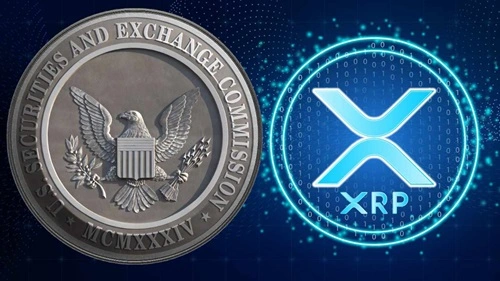The SEC-Ripple XRP Lawsuit involves the US Securities and Exchange Commission and Ripple, and concerns allegations made by SEC against Ripple that the latter sold XRP as an unregistered security. Ripple is a blockchain-based digital payment network and protocol which uses XRP ledger and its native token, XRP, to provide cross-border payment and crypto liquidity services to businesses. US Securities and Exchange Commission, on the other hand, is an agency of the federal government of United States, entrusted with the responsibility of enforcing laws against market manipulation.
When the lawsuit was filed against Ripple by the SEC in the year 2020, XRP was the third most popular cryptocurrency in terms of market capitalization. The SEC claimed in its lawsuit that XRP was not a digital currency but a security which was not registered, and sold by Ripple as unregistered security, thereby attracting legal action. The long drawn legal battle has concluded with an agreement between Ripple and SEC.
Background of the Lawsuit

Ripple, founded in the year 2012 by Chris Larsen and Jade McCaleb, built a decentralized platform with XRP as its digital currency to make global financial transactions cheaper and faster. What set XRP apart from other cryptocurrencies like Bitcoin and Ether is that its entire supply of 100 billion tokens was created at once. Moreover, Ripple uses a consensus algorithm to validate transactions across bank-controlled servers.
By the year 2020, Ripple had processed billions of dollars using XRP as a bridge currency. The payment network of Ripple, RippleNet, had helped more than 300 financial institutions in 40 countries to settle payments in real-time across borders.
Allegations contained in the Lawsuit
In December 2020, SEC filed a lawsuit against Ripple Labs; Chris Larsen, the company’s co-founder, executive chairman of the company’s board, and former CEO of the company; and Bradley Garlinghouse, the current CEO. The lawsuit was filed in a federal district court in Manhattan.
As per the lawsuit, Ripple raised $1.3 billion through the sale of unregistered digital security assets, known as XRP, to investors in US and other countries worldwide. Furthermore, Ripple allegedly distributed billions of XRPs for non-cash considerations like market-making services and labor. Larsen and Garlinghouse, the lawsuit claimed, conducted personal unregistered sales of XRP, amounting to $600 million.
SEC claimed that the sales of XRP by Ripple were essentially investment contracts, since the buyers were expecting to profit from Ripple’s efforts. Thus, XRP is a digital security under US law. Consequently, Ripple and its two executives, Larsen and Garlinghouse, violated the registration provisions of the federal securities laws by failing to register their offerings and sales of XRP or fulfiling any criteria for exemption from registration.
The SEC-Ripple XRP Lawsuit charged the defendants with violating the registration provisions of the Securities Act, 1933, and sought injunctive relief, civil penalties and disgorgement with prejudgment interest.
Stand taken by Ripple
Ripple claimed that XRP is not a digital security. The company emphasized that the XRP functions as a digital currency to facilitate swift, low-cost cross border payments. Ripple denied the claims that XRP is an investment meant to generate profit, citing the use of XRP in conducting real-world transactions.
Ripple’s defense also compared XRP to Bitcoin and Ether since the latter two are declared as not-securities by the SEC. The argument put forward in this regard was that XRP was sold on the open markets with a value independent of Ripple’s activities, just like Bitcoin and Ether. Thus, penalizing XRP while allowing Bitcoin and Ether to operate with impunity amounted to unfair regulatory standards.
Ripple also called SEC’s interpretation of securities laws to question.
Chain of Events
On July 13, 2023, the federal court ruled that only institutional sales of XRP tokens were unregistered security, but XRPs sold on exchanges were not securities. This ruling was viewed as a partial victory for Ripple. On August 7, 2024, federal judge Analisa Torres ordered Ripple Labs to pay a little over $125 million civil penalty. The penalty was imposed with respect to 1278 institutional sales of XRP which violated Section 5 of the Securities Act, 1933.
In March 2025, SEC and Ripple reached an agreement. As per the deal, SEC will hold $50 million of the original $125 million civil penalty in an escrow account, and the rest would be returned to Ripple. Furthermore, the SEC will ask the court to lift its injunction against Ripple.